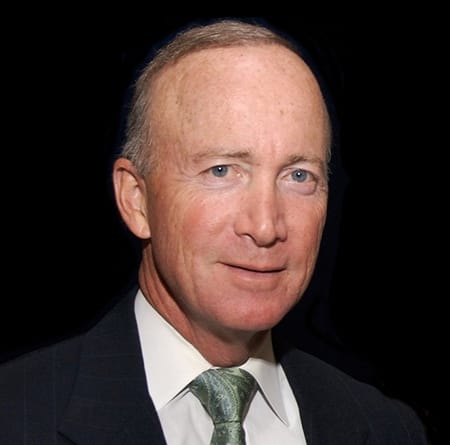It’s common for American presidents to grow in our estimation over time. Decisions once deemed unwise can look wiser or prescient with the perspective of decades. Harry S. Truman, Dwight D. Eisenhower and Ulysses S. Grant are among those presidents whose reputations have risen over the years.
One president is among the most deserving but least likely to enjoy a positive reputational upgrade, and that’s unfortunate. As we reached this month’s centennial of Calvin Coolidge’s accession to the presidency, upon the death of Warren G. Harding, a nation drowning in debt and in serious need of a cultural course correction could do much worse than to examine the life of the quiet man from Massachusetts.
We live in a time when the leadership of both parties, in the face of brutal arithmetic of which they cannot pretend to be less than fully aware, continues to drive the federal government and its safety net programs off a cliff of debt, at the bottom of which awaits not only an economic but also a social crisis.
Coolidge, who limited government employees to one pencil at a time, summed up his policy in 1924 as “I am for economy. After that I am for more economy. At this time and under these circumstances that is my conception of serving the people.”
Note the first two clauses: Coolidge was not a blinders-on ideologue. He endeavored to identify the right approach for the situation before him. In his day, he took that to mean reducing the national debt, and he did, by one-third. Would that we had him counting the pencils today.
Similarly, Coolidge is misremembered as a soulless, humorless materialist. The caricature was built on misquotes — he said not “The business of America is business” but “The chief business of the American people is business,” a crucial distinction. Forgotten are statements like “Prosperity is only an instrument to be used, not a deity to be worshiped.” His taciturnity masked a gentle wit, which prompted an amusing fiction about Coolidge that later came to be regarded as fact: To a dinner companion who had supposedly bet she could get him to say more than two words, he was said to have replied, “You lose.”
Coolidge presided over nearly six years of booming prosperity, although some debate continues about whether his policies contributed to the subsequent crash and depression. Where one wishes most for another Coolidge is where we are least likely to find one, in the realm of persona, style and personal conduct.
We’re mired in a hot-dog, look-at-me, dance-in-the-end-zone world. Success in public capacities seems reliant not on the quality of officeholders’ ideas or effectiveness, but on their cleverness and audacity in sound bites, tweeting and the other “performative” arts. It’s hard to imagine anyone more countercultural, less in sync with today’s zeitgeist, than Silent Cal.
Having again this year endured the absurd spectacle that is the modern State of the Union ritual, one yearns for another Coolidge who, rejecting Woodrow Wilson’s “innovation” of marching up to Congress for a PR stunt disguised as a speech, returned the nation temporarily to the traditional practice of simply sending a written report.
A heuristic device that I have found rarely misleads is to take a politician’s statement that begins “I am humbled and honored” to mean its opposite. Coolidge’s life bespoke not false modesty but an authentic humility, the virtue that enhances wisdom through the recognition of how much one does not know, and protects liberty by reminding its possessors that they should be careful before ordering others about how to live their lives. Coolidge’s funeral in 1933 — a modest affair, as requested by his wife, reflecting how he had lived — consisted of two hymns, zero speeches or eulogies, and lasted 22 minutes.
Grant’s image, like Coolidge’s, was disfigured by his earliest historians — in Grant’s case mainly Southerners who sought to create the romantic fiction of the Lost Cause and needed villains for that narrative. For Coolidge, the detractors were New Deal writers eager to justify unprecedented expansions of central authority and disparage advocates of limited government and freedom of enterprise.







